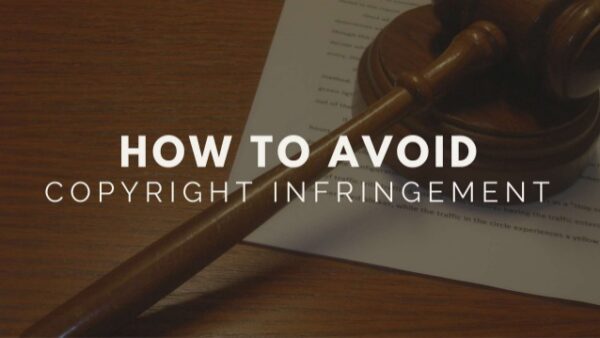
A form of intellectual property, copyright is designed to protect the original works of an author, a creator, or an owner once the work is fixed in a tangible form of expression. The works according to copyright law include books, plays, poems, blog posts, musical compositions, architectural works, paintings, illustrations, photographs, and more. These creative works are protected from copyright infringement or unauthorized use.
A Brief Intro on Copyright Infringement
Copyright infringement generally occurs when someone uses a copyrighted work by reproducing, displaying publicly, distributing or performing without the copyright owner’s permission. If you copy or distribute copies of the copyrighted content, it is copyright infringement. A copyright owner, in the case of infringement, can either seek civil remedies or file a criminal complaint.
There is a common misconception that the content published on the Internet is not copyrighted and so, such content is copied or reproduced. It should in fact be treated like the work of a creator that is bound by legal principles. Here are a few tips to avoid copyright infringement of an author’s work.
Make the Right Assumption
Copyrights, unlike patents and trademarks, are easily violated intentionally or unintentionally. It is not right; what you find and read on the Internet are protected by default. Blogs, academic writing, literary work, and journals, which are authored by someone, are copyrighted, and if you copy or reproduce any of this, it results in copyright violations. It is important to have a strict approach to how you use the content online. If you happen to use the ideas, words, and expressions from a specific text, give credit to the author through proper citations and references as you would know the consequences of plagiarism are serious.
It is essential to know what copyright does not protect. In general, copyright law hardly protects the facts or the basic ideas of creative work. To make it clear, you can read a book and express your own ideas, words, or facts about it, and it will not result in reporting copyright infringement.
Nevertheless, expressing in your own words, ideas or facts demands appropriate citation by giving credit to the original source. You need to do so as a common courtesy, and if not, it would be violating the Copyright Act. Your work created pursuant to the act may become derivative work in the absence of any permission or license to use the work from the copyright holder.
Paraphrasing or altering someone’s work may result in plagiarism and it is advisable to run a check for plagiarism, and rewrite it in your own words to save you from copyright violations.
Seek Permissions
Copyright laws do not allow you to touch something that is not yours. As you know, the golden rule is to obtain the express permission of the author or creator of the copyrighted work to use it. You can seek permission by contacting the author and discuss with him or her about using the work. You can better put it in writing an agreement explaining why you want to use the work, and how would you compensate for it.
Review Agreements
There are free photo sites, and most people get into trouble by using them thinking that the photos on these sites are free, and those who posted them have the right to do so. Some photos show “Some rights reserved”, which require attribution or if they are copyrighted, then some license agreements will apply. Nevertheless, “Some rights reserved” may mean Creative Common License and therefore, you have to go through it carefully, if needed, comply with the conditions of that specific application. Generally, Creative Common Licenseasks for just attribution.
It is advisable not to rely on ‘fair use’ text because it is a complex aspect of the law, which is difficult to explain and justify what is fair use. Seeking permission to use is the best way of dealing with a text if you are in doubt.
Get an IP Policy
An IP policy is a set of uniform principles which effectively help protect against unintentional infringement
Talk to Lawyers
Understanding copyright law is not easy, and its complexity creates confusion and often results in serious legal consequences. It is essential to get legal advice to know the ways to avoid copyright infringement so that you can ensure that your business adheres to the law.
